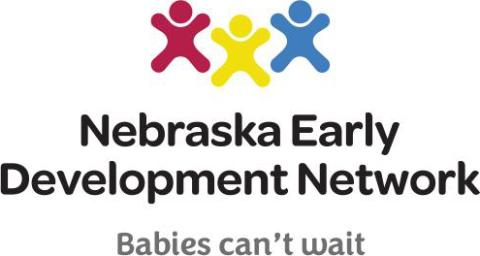
Children age birth to three years old, who have developmental delays, are eligible for service coordination from the Early Developmental Network at ESU 5. The Early Development Network Services Coordinators work with local school districts to provide Early Intervention Services. These services are family-based, in families homes or where their child spends his/her days, and paid for by Health and Human Services through Federal Medicaid Funds. This service is provided to families for free. The Early Developmental Network services are designed to meet the needs of families and children. It also helps prepare the children for entrance into preschool.
The Early Intervention Team works on Child Find activities, encouraging families, medical personnel, teachers and community members to promote early intervention and child development.
If you have concerns about a young child's development,
please call us at (402) 223-5277.
Signs/Indicators of a Disability
The following are SOME indicators that MAY be a sign of a disability in a child (a full evaluation is necessary):
-
Not reaching developmental milestones at the same time as other children of the same age (see age-appropriate links to the left and above)
-
Not responding to sounds/noises around them or not responding to their name by 6 months to 1 year of age
-
Vision difficulties - by 9 months they should begin to recognize familiar faces - look for the ability to focus on objects and not look past objects
-
Speech seems delayed significantly or words are very difficult to understand even at 2-3 years of age
-
Not being able to crawl or walk in a realistic age range
-
Acting out very aggressively and/or having social difficulties with other children
-
Genetic diseases may lead to other disabilities
-
Not responding to being cuddled
Websites With More Information
-
The Early Development Network - https://edn.ne.gov/cms/
-
Department of Health and Human Services Center for Disease Control and Prevention - http://www.cdc.gov/
-
Zero to Three - http://www.zerotothree.org/
-
National Dissemination Center for Children with Disabilities - http://www.nichcy.org/
-
Children's Disabilities Information - http://www.childrensdisabilities.info/
-
Learning Disabilities Online - http://www.ldonline.org/
Developmental Facts
-
A baby's brain is a "work in progress." Most connections are formed after birth as a result of interaction with the baby's environment.
-
Most human brain connections for vision are in place by 8 months.
-
Language development is one of the most important activities for a developing infant. Babies can recognize their native language and their mother's voice even before birth, and begin absorbing information immediately after birth.
-
Hearing loss is the most common congenital disorder in newborns.
-
The average age at which children are diagnosed with a hearing loss is 2.5 years.
-
Research suggests that children identified with a hearing loss that are given appropriate intervention before 6 months of age have significantly better language skills than children identified after 6 months of age.
-
Infants identified with a hearing loss can begin immediate intervention as early as 4 weeks of age. Early identification is the key to increasing the chances that language, cognitive, and social development are similar to that of hearing infants.
-
Hearing tests are painless and can be done while a baby is sleeping. Small microphones placed in the infant's ears by an Audiologist will measure the ear's response to sounds. The process takes less than five minutes.
-
